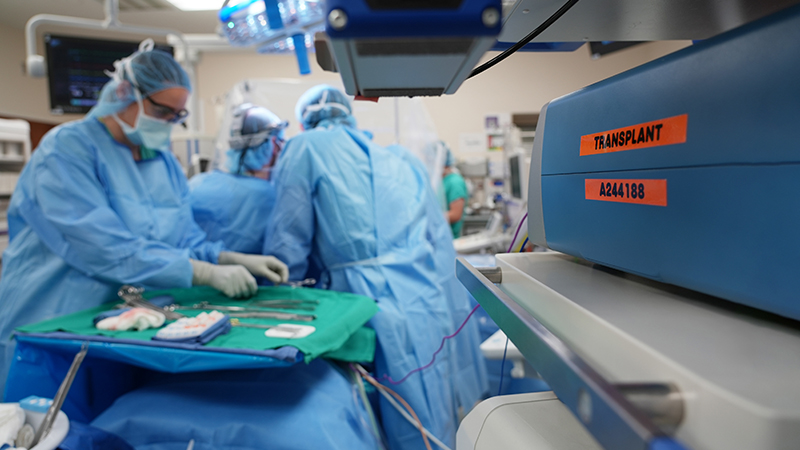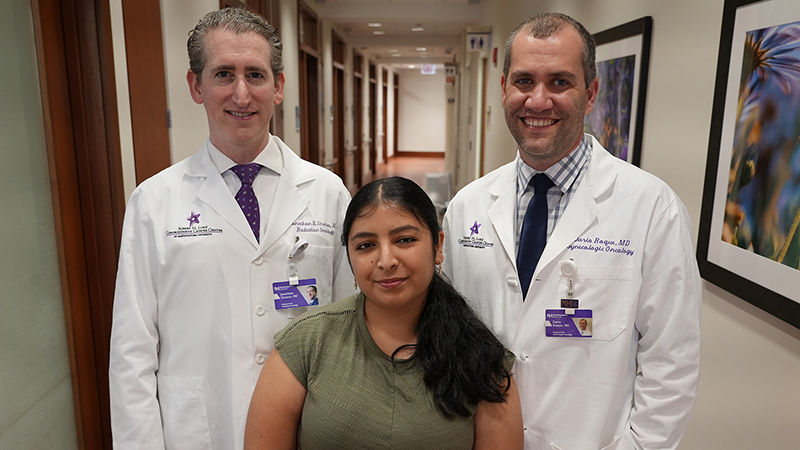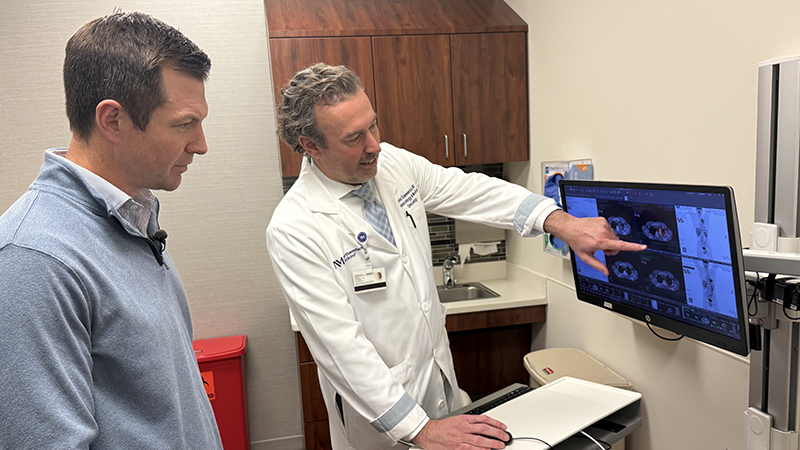Heart Transplant Allows Mom to Dance at Son’s Wedding
Grateful for the Gift of Life
Published February 2023
Vicki Strawn, Bartlett, Illinois, is a 63-year-old retired preschool teacher, wife, mother of three and grandmother. Looking at her today, you would never know that her heart was once so severely damaged that she needed a lifesaving heart transplant.
Vicki had led a healthy lifestyle; she never drank or smoked, and she exercised regularly. But in her mid-40s, she started experiencing strange symptoms, including unexplained nausea and sweating. She thought it might be her gallbladder or maybe even early menopause, so she dismissed the symptoms.
I am just so grateful for this gift of life.— Vicki Strawn
A heart attack, medically known as myocardial infarction, happens when a coronary artery is suddenly blocked due to coronary artery disease. This blocks blood flow to the heart, meaning certain parts of the heart muscle don't get blood, resulting in heart muscle damage.
While the most common symptom of heart attack in both men and women is chest pain, women are more likely to experience less common symptoms of heart attack, including:
- Excessive sweating
- Nausea/vomiting
- Lightheadedness
- Shortness of breath
- Back and jaw pain
- Epigastric (upper central region of the abdomen) discomfort
- Unexplained fatigue
"I thought a heart attack was something where I would be grabbing at my chest and falling on the floor," says Vicki. "I guess I was in a little bit of denial about all of my symptoms, and I just kept going on with life."
When she was 51, Vicki began having similar symptoms to those she had 10 years prior, but she didn't seek care right away. Eventually, when she wasn't getting any better, she went to the Emergency Department at Northwestern Medicine Central DuPage Hospital. Her care team performed blood tests and a cardiac catheterization, a diagnostic procedure where a catheter is inserted into the heart to see how well it's working.
The tests concluded that Vicki had had a heart attack. To help improve the blood flow in her heart, Vicki's care team placed a stent in her coronary artery to keep the vessel from narrowing again and causing another heart attack.
The Need for a New Heart
Because she had waited so long to seek care, Vicki's heart was severely damaged. As time passed, her symptoms worsened, including fatigue that stopped her from being able to grocery shop. It was clear that Vicki needed a major medical intervention.
"After meeting Vicki, you can just see what a zest for life she has, and we wanted her to have the best quality of life," says Anjan Tibrewala, MD, her main heart transplant cardiologist at both Northwestern Medicine Central DuPage Hospital and Northwestern Memorial Hospital. "Because Vicki's heart was so severely damaged, and based on test results we had received, we knew she was a good candidate for heart transplant."
Vicki didn't have to wait long for a donor heart. In May 2021, she got the call she had been waiting for.
"It was a Saturday night at about 11:30 pm when my phone rang, and I saw the Chicago phone number. I just remember thinking, 'Oh my goodness, this is it,'" says Vicki. "Once I got to the hospital and was preparing for the transplant, I told my clinical team that I had just one goal: to dance at my son's wedding in October."
Listen to Your Heart
Following surgery, Vicki felt better almost immediately. After finishing rehabilitation, Vicki noticed that she had more energy than she had had in the past two decades.
With the support of her physicians, Vicki achieved her goal: She and her son danced at his wedding to the Phil Collins song "You'll be in My Heart," leaving not a dry eye among the guests. Shortly after celebrating the one-year anniversary of her transplant — or, as she calls it, her "Heartiversary" — Vicki became a grandmother.
Vicki and her husband hold out hope to one day meet and express their gratitude to the family of her donor who they consider the "true heroes" of her story.
"I think about the donor and their family all the time. They are always with me. Every time I feel my heart beat, I am just so grateful for this gift of life," says Vicki. "Now I tell everyone — especially my female friends and family — to listen to their bodies and not ignore the symptoms."




